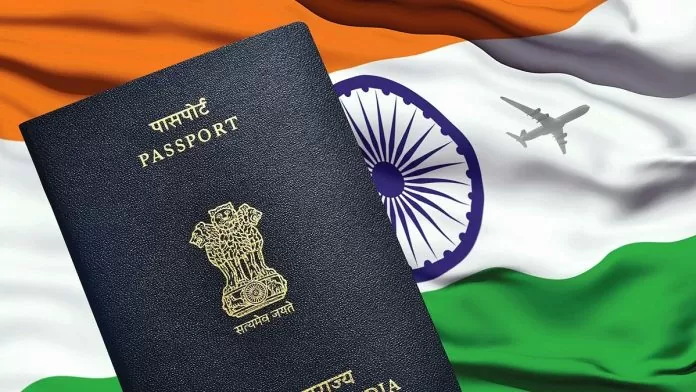
Can Indians have dual citizenship? If a person is considered a citizen of two countries simultaneously, it means that he has dual citizenship. In other words, dual citizenship means being a citizen of two countries simultaneously. Every country has its own laws and rules regarding citizenship. No person can obtain dual citizenship on his own will. This is a legal situation. For example, if a child of a US citizen is born outside the country, the child will automatically become a citizen of the country of birth and the US.
In case of dual citizenship, a person enjoys the rights and privileges of both the countries. Such as permission to live, work and travel freely in both countries and access to social services. Under this, a person can avail various benefits available in that country. The main ones are education, health care and social security. Having dual citizenship also allows a person to hold multiple passports, making international travel more convenient. A person can acquire dual citizenship through several methods such as birth, marriage and naturalization. However, dual citizenship also comes with certain responsibilities. Like paying taxes in both countries and following the laws of each country.
Recently, the Consulate in the US had given clarification on dual citizenship. It said that the Constitution of India does not allow simultaneous holding of Indian citizenship and citizenship of a foreign country. The Government of India has decided to register certain categories of persons of Indian origin specified in Section 7A of the Citizenship Act, 1955 as Overseas Citizenship of India (OCI) cardholders. It is basically a lifetime visa and has some other privileges attached to it. It also reiterated that holding an OCI card in no way entitles its holders to acquire dual citizenship status.
What does Indian law say?
The Constitution of India prohibits any person from holding both Indian citizenship and foreign citizenship at the same time. However, based on the recommendations of the High Level Committee on Indian Diaspora (Non-Resident Indians), the Government of India introduced Overseas Citizenship of India (OCI), often referred to as 'dual citizenship'. OCI card is an option for those who want to maintain their connection with India while holding citizenship of another country.
Is OCI the same as dual citizenship?
The Government of India offers Overseas Citizenship of India (OCI), often referred to as dual citizenship. However, OCI does not confer full citizenship rights. India started offering OCI in the year 2005.
What is PIO?
A person of Indian origin is a person whose ancestors were Indian citizens and currently holds citizenship of another country. These people have passports of the same country. Since these people have foreign passports, they do not get any special benefits in India. A PIO is a foreign national who has roots or connections in India, except persons from Pakistan, Afghanistan, Bangladesh, China, Iran, Bhutan, Sri Lanka and Nepal.
Eligibility Criteria for OCI in India
Before applying for dual citizenship in India, it is important to consider the specific eligibility criteria, which may differ depending on other countries. To be eligible for dual citizenship with India (OCI), the following rules apply…
Persons who have been living in India for more than 7 years.
Who are married to Indian citizens.
Persons whose parents have Indian citizenship, the applicant must have been living in India for at least one year.
Individuals who have been registered as Overseas Citizen of India (OCI) for at least 5 years.
There are some countries in the world which have adopted the policy of dual citizenship. These countries offer Indian citizens the opportunity to retain their Indian heritage through Overseas Citizenship of India (OCI) card.
Canada: Canada allows dual citizenship, allowing Indian citizens to maintain their Indian roots through an OCI card while enjoying the benefits of Canadian citizenship.
Australia: Australia allows dual citizenship, allowing Indian citizens to enjoy both Indian and Australian privileges with an OCI card.
Germany: Germany accepts dual citizenship subject to certain conditions, allowing Indian citizens to maintain their ties with India through an OCI card.
Sweden: Sweden allows dual citizenship, allowing Indian citizens to retain their Indian identity with an OCI card while also becoming a Swedish citizen.
United Kingdom: The UK allows dual citizenship, allowing Indian citizens to maintain their Indian identity with an OCI card while maintaining British nationality.
Norway: Norway accepts dual citizenship, allowing Indian citizens to preserve their Indian roots through an OCI card while keeping Norwegian citizenship.
Ireland: Ireland allows dual citizenship, allowing Indian citizens to take advantage of both Irish and Indian ties with an OCI card.
United States: The United States allows dual citizenship, allowing Indian citizens to retain their Indian heritage through an OCI card while also becoming a US citizen.
Finland: Finland allows dual citizenship, allowing Indian citizens to maintain their ties to India through an OCI card while keeping Finnish citizenship.
New Zealand: New Zealand allows dual citizenship, allowing Indian citizens to retain their Indian identity with an OCI card while also becoming a New Zealand citizen.
 look news india
look news india